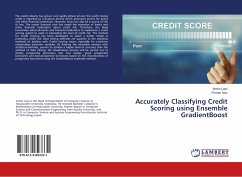A performance is the execution of a sequence of actions. In a musical performance, some of the actions are dictated by the score. Other decisions made by the performer give the performance its character and individuality. Therefore, this project aims to identify these kinds of decisions and to extract information about these in as features from the performance. A computer program can be used to analyze the features of a performance and to classify whether a performance is consistent with a given performance profile. We propose and investigate two approaches for determining the underlying beat of a performance. A general structure for k-nearest neighbor (k-NN) classifier was developed. This involved consideration of 4 main issues: the choice of k, the choice of distance function, the way information from the nearest neighbors is used to produce the classification and how a k-NN classifier can indicate what confidence might be placed in the classification it returns. A general review of k-NN classification schemes with respect to these 4 main issues was undertaken, as was a design for software implementing a general k-NN classification scheme.
Bitte wählen Sie Ihr Anliegen aus.
Rechnungen
Retourenschein anfordern
Bestellstatus
Storno








